Loans and Financing
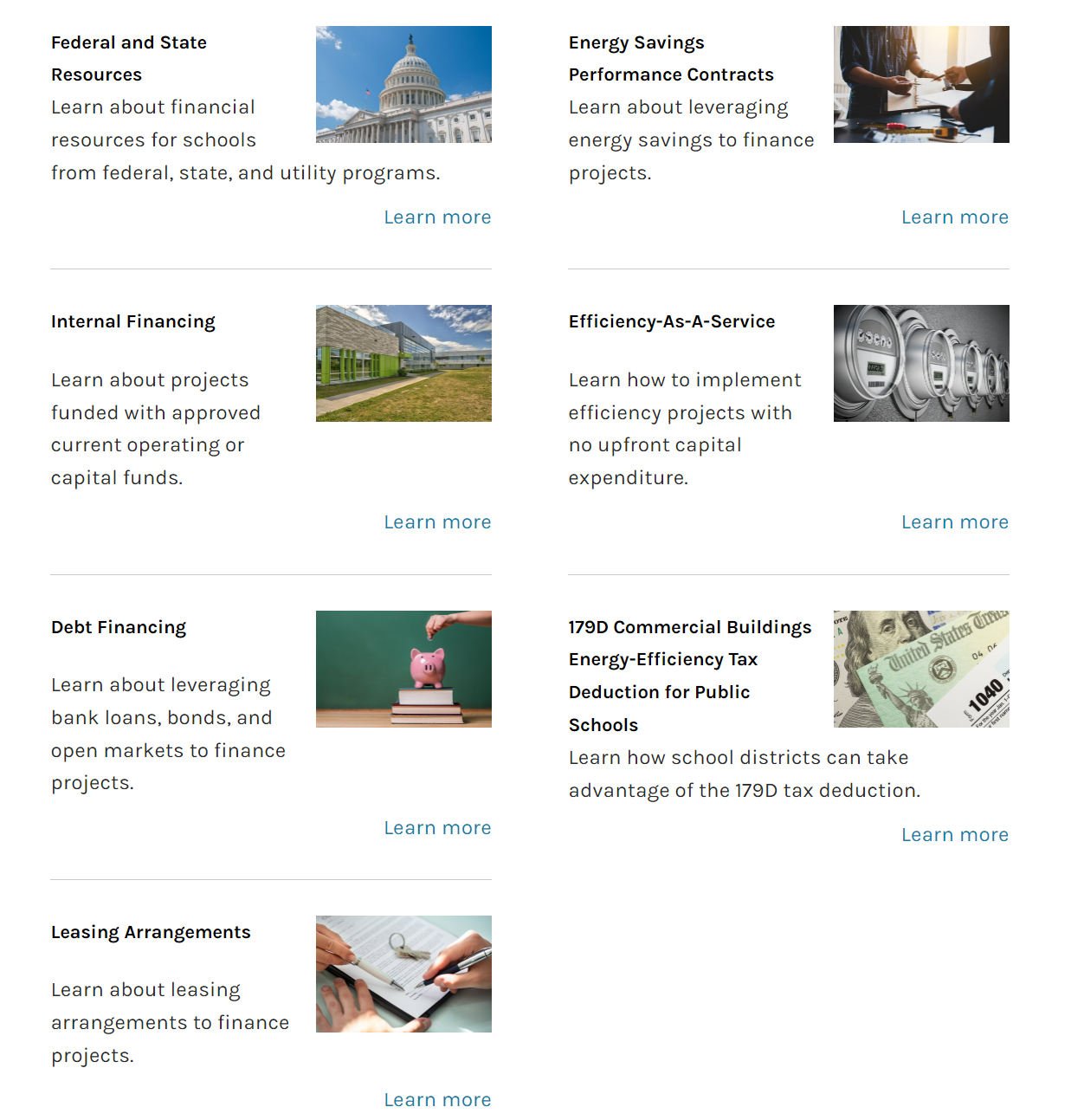 Financing Efficient and Healthy Retrofits
Financing Efficient and Healthy Retrofits
U.S. Department of Energy summarizes approaches to access capital and financing energy-efficiency projects in schools. The list features federal and state resources, internal financing, debt financing, leasing arrangements, and energy service performance contracts among others.
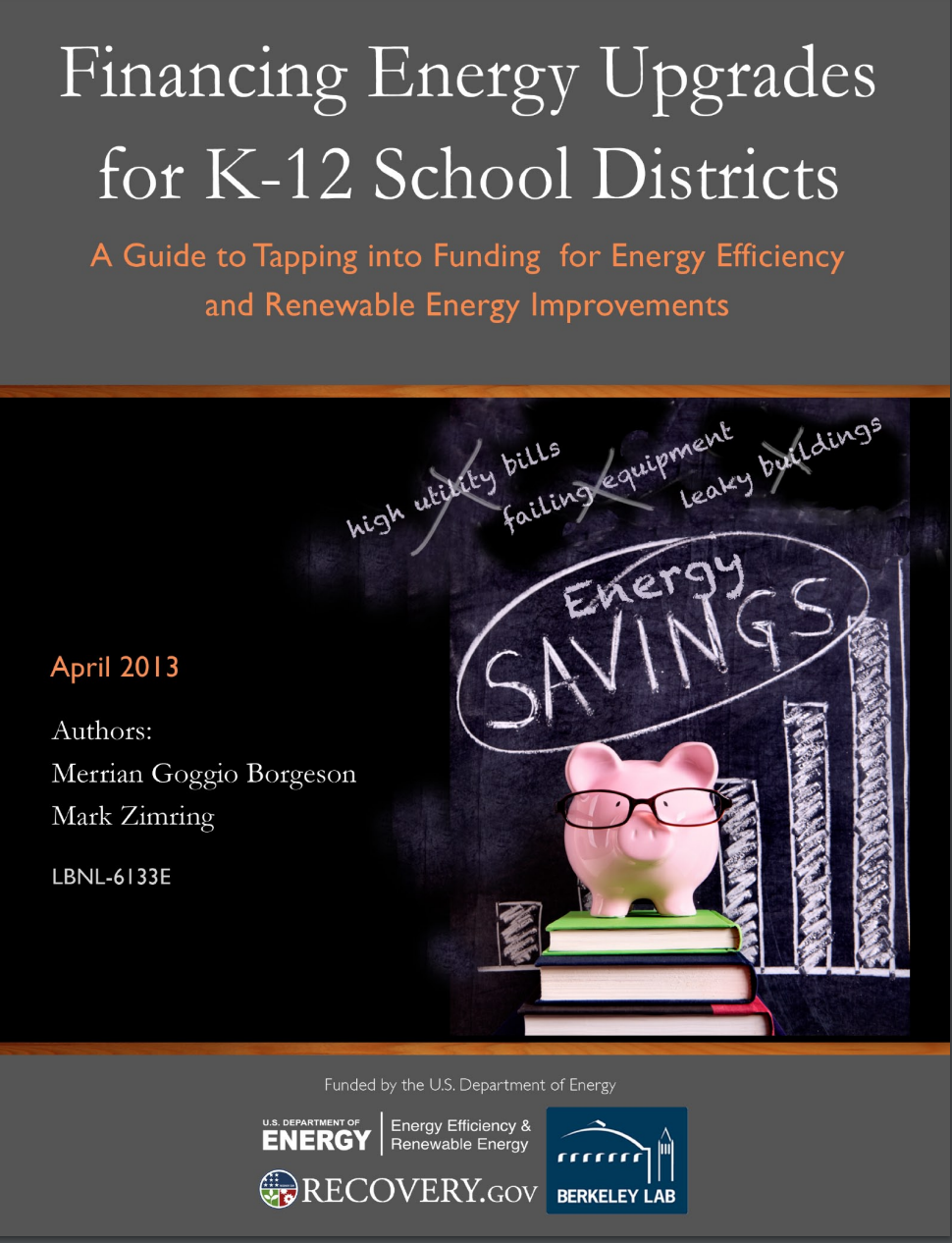 Guide: Financing Energy Upgrades for K-12 Schools (2013)
Guide: Financing Energy Upgrades for K-12 Schools (2013)
Comprehensive, high-level review of project financing options specific to the K-12 sector, including a summary of standard public and private sector offerings. Case studies including in the document provide additional detail on each of the options identified.
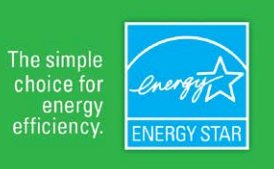 Finding money for energy-efficiency projects in the public sector
Finding money for energy-efficiency projects in the public sector
Paper describing how energy services performance contracts (ESPCs), tax-exempt lease-purchase agreements, energy efficiency bonds, and state green banks may offer you practical solutions when no money is available in the current budget for further improvements. It also provides clear financial reasoning and cost modeling, which demonstrate that energy efficiency projects really can pay for themselves within existing operating and capital budgets.
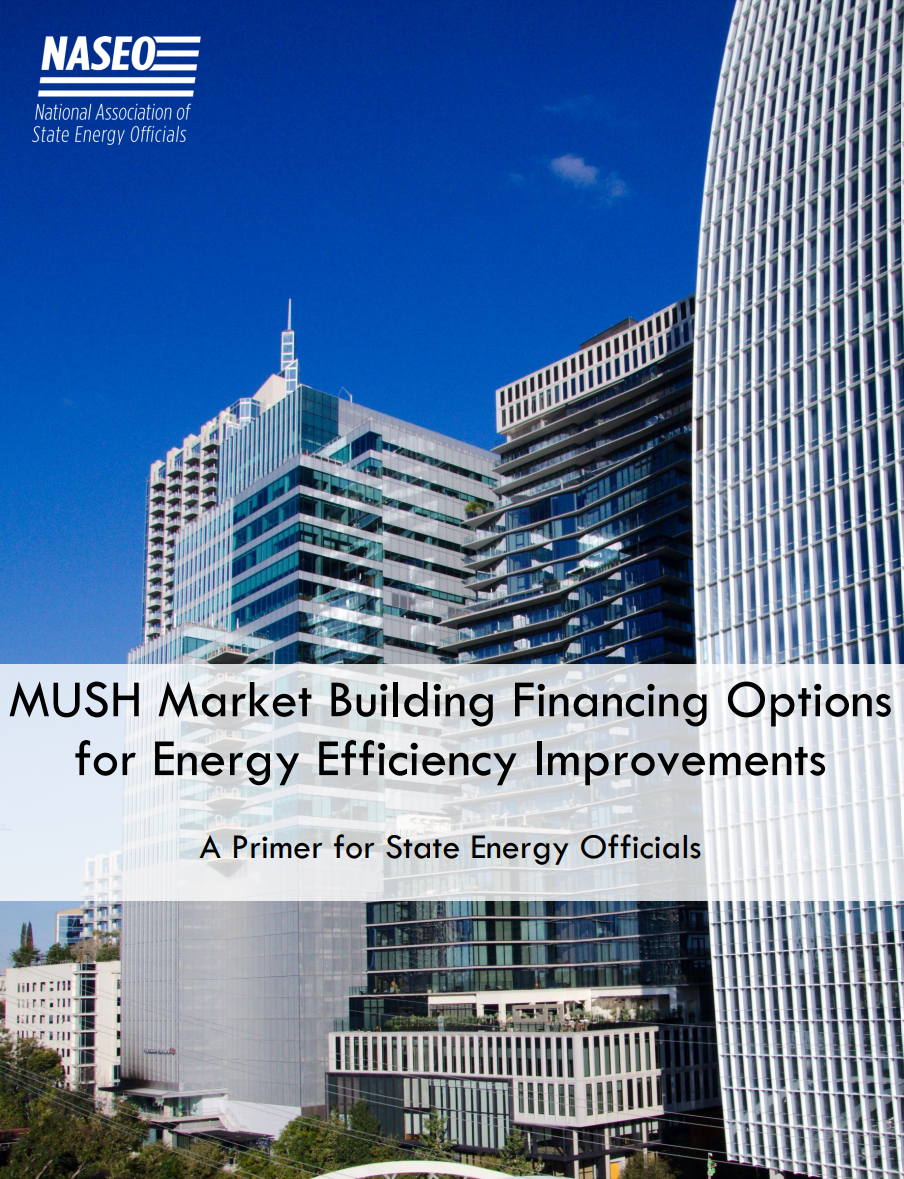 MUSH market financing options primer
MUSH market financing options primer
Guide describing financing mechanisms available to municipal and State entities such as public schools. Along with an overview of these, it outlines the roles that State and local government offices can adopt to support successful implementation.
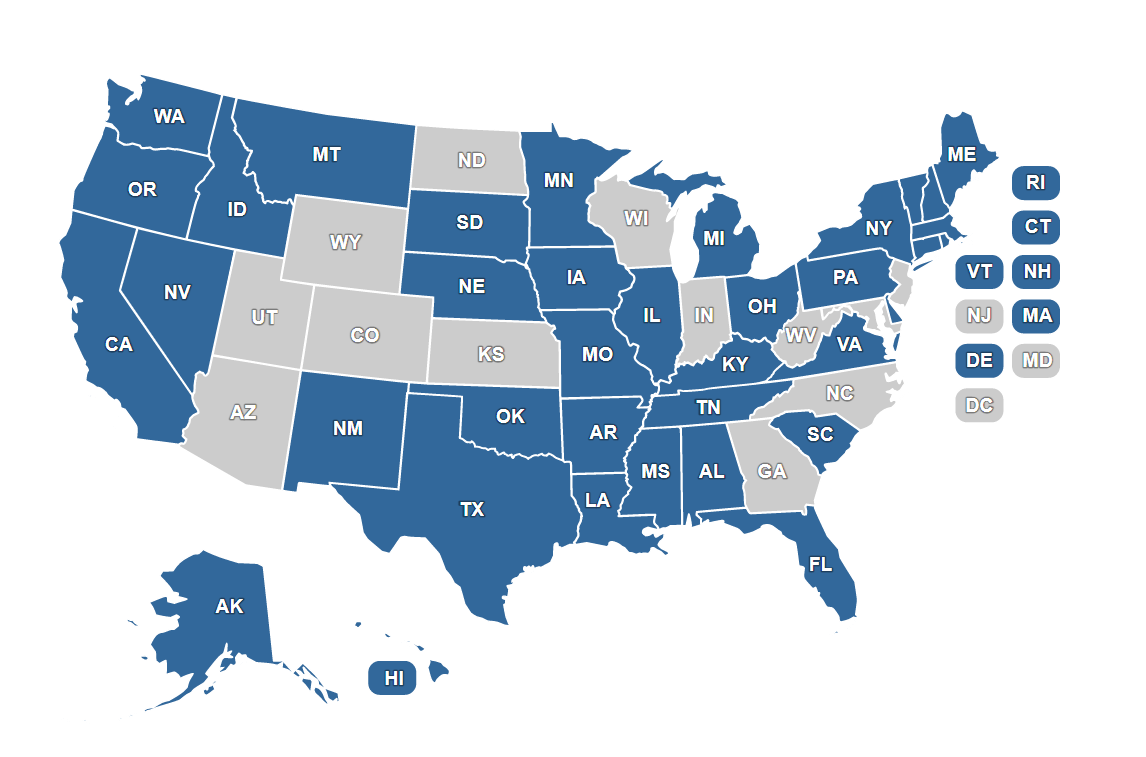 NASEO State Energy Loan Fund Map
NASEO State Energy Loan Fund Map
Online interactive guide to State-approved energy project financing programs across the US by individual State, including Green Bank, PACE, and on-bill financing.
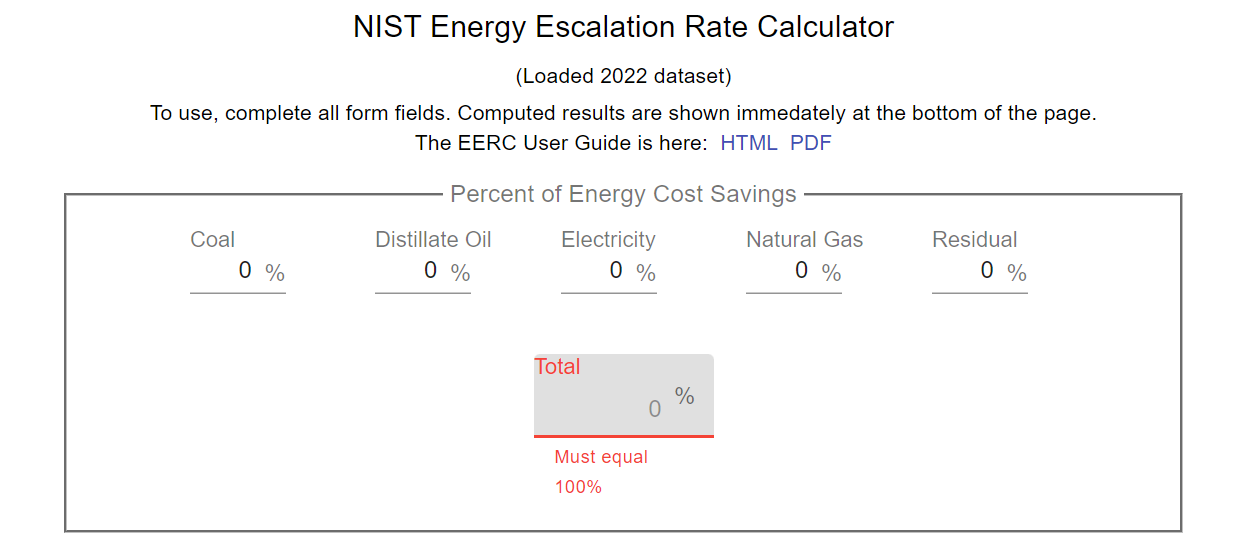 Energy Escalation Rate Calculator (EERC)
Energy Escalation Rate Calculator (EERC)
Tool for estimating escalation rates for ESPC project payments year-on-year and over the term of the contract. This tool appears designed for use at the contracting stage, in order to compare ESCO terms offered with an independent, calculated benchmark.